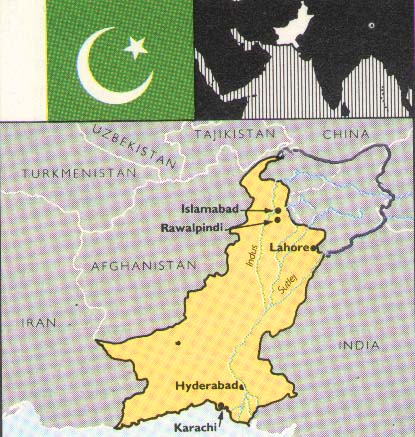HISTORY
Pakistan traces its history back to 2,500 years B.C., when a highly developed
civilizations flourished in the Indus valley. Excavations at
Harrappa, Moenjodaro, Kot Mehr Garth have brought to light, the evidence of an advance cultivation
existing even in more ancient times.
Around 1,500 B.C., the
Aryans overwhelmed this region, and influenced the Hindu civilization, whose center
moved to Ganges Valley, further east. Later, the Persians occupied the northern
region in the 5th century B.C up to the 2nd century AD. The Greeks came in
327 AD, under Alexander of Macedonia, and passed away like a meteor. In 712 AD,
the Arabs, led by Muhammad Bin Qasim, landed somewhere near Karachi and ruled
the lower half of Pakistan two hundred years.
During this time, Islam took roots in the soil and influenced the life, culture
and traditions of the people.
In the 10th century AD, began the systematic conquest of South Asia
by the Muslim from Central Asia, who ruled here up to the 18th century. Then the
Birth became the masters of the land and ruled for nearly 200 years and for only
100 years over what is Pakistan now. The Muslim revival began towards the end of
the last century when Sir Syed Ahmad khan, a renowned Muslim leader and educationist, launched a movement for intellectual renaissance of the Muslim of
South Asia. In 1930, the well-known poet-philosopher, Allama Muhammad Iqbal,
conceived the idea of a separate state for the Muslim of South Asia. In 1940, a resolution was adopted by the All-India Muslim League,
demanding a separate independent home land for the Muslim of South Asia. After
07 years of un-tiring struggle under the brilliant leadership of Quaid-e-Azam
(the Father of Pakistan and great leader), Muhammad Ali Jinnah,
Pakistan emerged
on the world map as a sovereign state, on 14th August,
1947